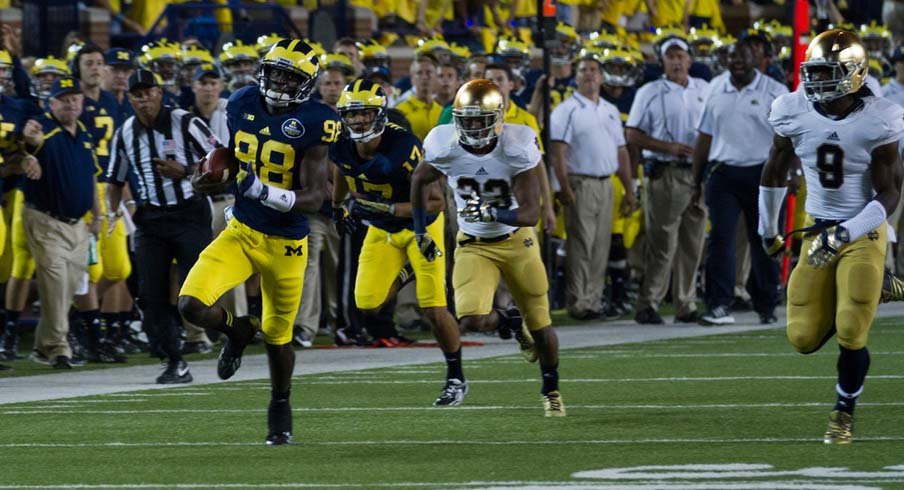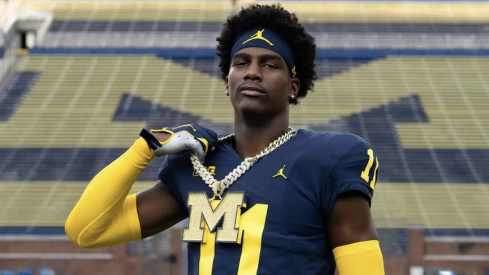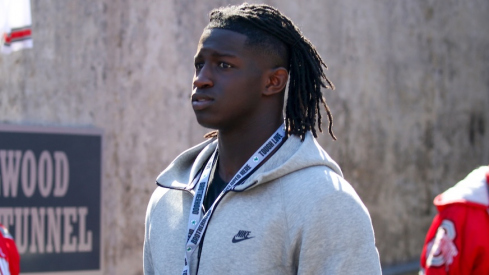Non-conference schedules provide year-round discussion and debate for college football wonks. The SEC only plays Sun Belt and FCS schools, Big Ten fans shout. Notre Dame annually plays the toughest schedule in the nation, Irish supporters claim. The arguments rise in decibel level and end with one fan base asserting their team – or conference – has the toughest August and September slate.
The Big Ten came to an agreement last season that member schools would deviate from a previous scheduling philosophy that saw FCS teams collect guarantee checks for a 50-point loss. With the College Football Playoff selection committee rewarding teams for difficult schedules, beefing up the non-conference portion became vital for the Big Ten.
“We don’t have any penalties for those that [play FCS schools],” Big Ten commissioner Jim Delany said last season. “It’s not like a violation of our rules. But everybody agreed when every game is televised, every game matters and the fans matter. Interest in those games is less. They’re from another division. They have 20 less scholarships. It’s like a junior college team playing against a high school team or a high school team playing against a JV team.”
Of course, one of those so-called JV teams beat the varsity in 2007 – Appalachian State over Michigan. But Delany’s point is understood and applauded by most. Last season, every Big Ten school except Michigan and Penn State played a lower division school. In 2014, it’s the same number: two – Ohio State and Penn State.
Beyond 2014, Big Ten-FCS matchups are sparse. Indiana head coach Kevin Wilson thinks games against FCS teams from the Midwest serve a purpose. The Hoosiers host Indiana State on a semi-annual basis. Delany countered by saying Indiana doesn’t have to play USC, “but maybe you can go play Kentucky.”
In fact, the two uneasy neighbors used to play every season. But the series was discontinued following the 2005 game. A sense of irony came over Delany’s comments earlier this spring when the SEC agreed to play more FBS schools. Jokes immediately surfaced about the SEC loading up with games against the Hoosiers, to which the athletic department’s official Twitter account responded with their phone number.
The Big Ten might be mocked for its inability to win big games in recent years, but the conference doesn’t back down from playing big-time schools. Alabama, USC, Texas, Oregon, Oklahoma, LSU, Florida and Missouri have all been recent regular-season opponents or will be in the near future.
The first weeks of the college football season are fraught with anticipation. Big games are hit and miss. In 2014, the Big Ten could be a hit. Wisconsin plays LSU in Houston, Michigan State travels to Oregon, Ohio State hosts Virginia Tech, Nebraska welcomes Miami to Lincoln, and Notre Dame plays Michigan.
Before the calendar flips to October, the Big Ten’s national reputation could either be in shambles or boosted significantly. The Badgers can set the tone on the opening Saturday night against LSU. Michigan State’s trip to Autzen Stadium is another monumental game when it comes to perception.
The Spartans lost a portion of its all-world defense, which makes a date with Oregon’s do-it-all quarterback, Marcus Mariota, that much more difficult. Still, it’s an early season game between two playoff contenders. The winner will be the toast of college football – at least for the month of September.
The game already has Michigan State’s full attention. It will have an entire summer to develop a game plan for Mariota and the Ducks’ high-flying offense. What the Spartans do possess is Oregon’s kryptonite: a tough, physical defense. But Michigan State has struggled against mobile quarterbacks in recent years. Something has to give.
Even games that may be off the grid – UCF vs. Penn State in Ireland, Rutgers at Washington State and Maryland at South Florida – carry value when one views a conference from top to bottom. The Big Ten has been presented with an opportunity to close the gap on the hated SEC.
The 2014 season marks a new era for the Big Ten, and turning excitement and energy into positive publicity early in the season could create a wave of momentum.


